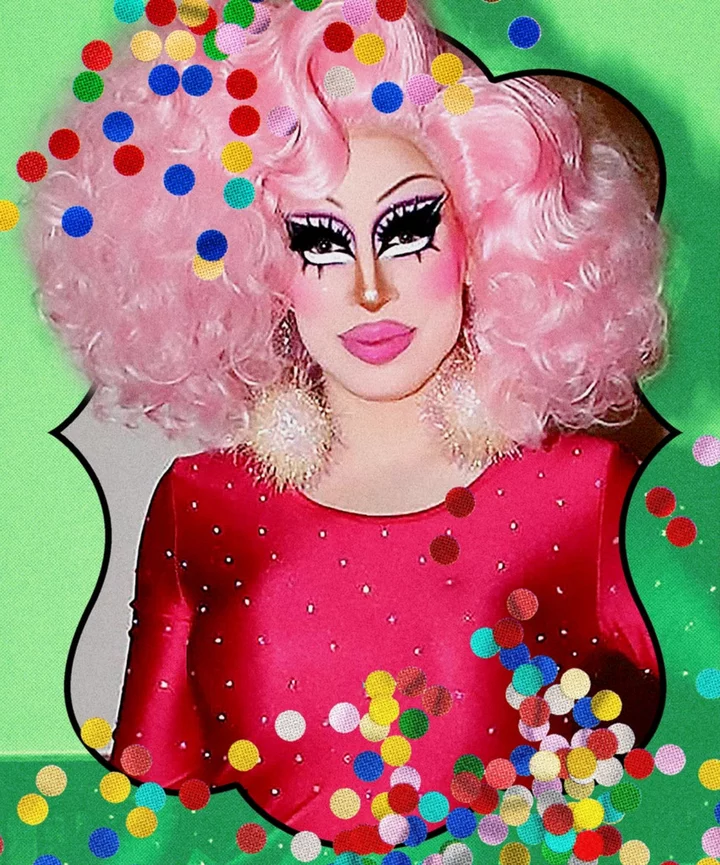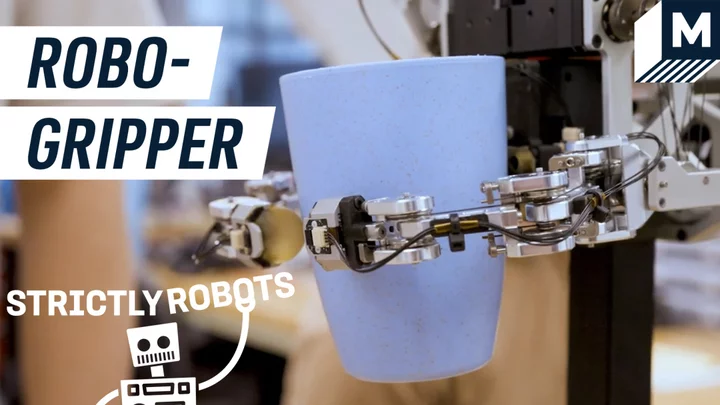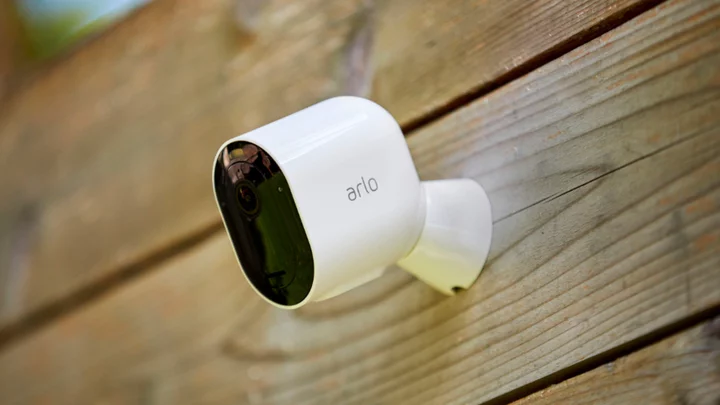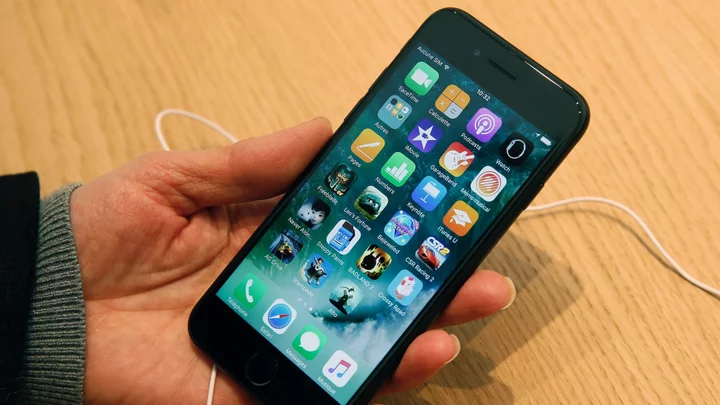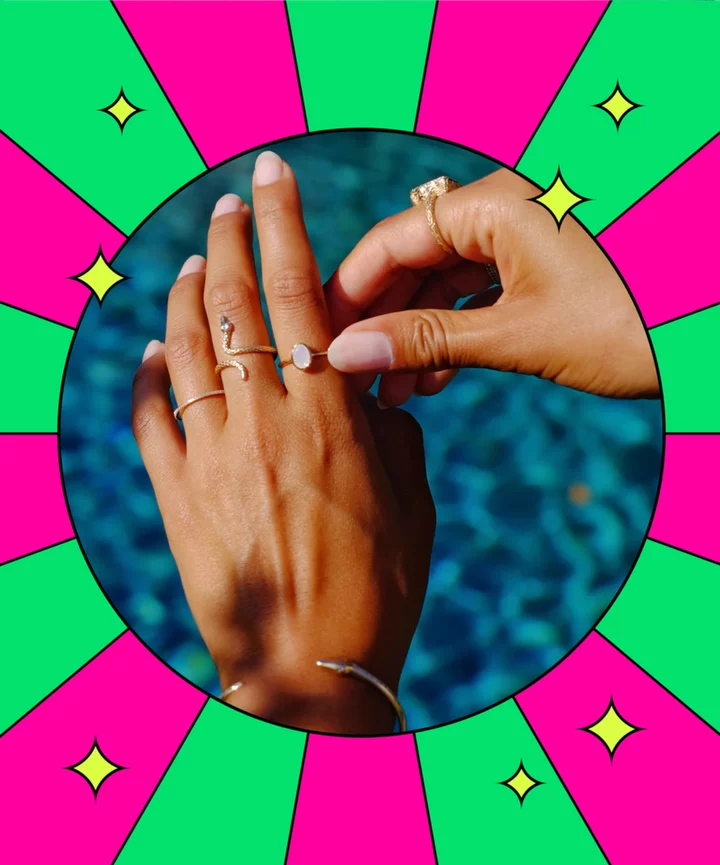Brigitte Bandit, a drag queen based in Austin, TX, went viral for taking on anti-drag legislation in Texas that threatened her livelihood and those of her fellow queens. Two bills proposed in the legislature in the Lonestar state this year initially targeted people using “clothing, makeup, or other similar physical markers” to “exhibit” a gender not assigned at birth, in this case just acknowledging men and women. Meanwhile, the legislation also attempted to penalize venues, like libraries, where they might read stories to kids or otherwise perform. What ultimately passed was a different and diluted version of one of the former bills, but drag performers still worried the language was so vague there could be penalties.
As such anti-drag bills are being proposed and passed nationally, Bandit is taking a stand for the rights of her community — and hustling at a job she loves as she does it. Here’s her story.
@dragstoryhour We stan a southern icon! #dragqueens #dragqueen #drag #gay #rupaulsdragrace #dragshow #lgbt #pride #texas #dragstoryhour #dragqueenstoryhour #texasdrag ♬ Stories 2 – Danilo StankovicRefinery29: Before we dive into the intricacies of working as a drag queen full time, how did you think about money growing up, and how has that informed your work now?
Brigitte Bandit: “We always lived frugally when I was a kid, but I didn’t notice it then. Now I look back, and we would go see movies at the $5-dollar movie theater, and my mom would get the large popcorn and put napkins in our laps and dump popcorn in them, instead of buying multiple bags. There were little things like that.
My mom had a hair salon, and, when we were old enough, she would have us work there over summers, and would pay us a dollar or two an hour. We’d put that towards buying our back-to-school clothes and such. That experience taught me a lot about money and working with people — the beauty stuff didn’t sink in. Then I got a job at a ceramics place as my first official job. I’ve worked my whole life since I was a teenager, and I’ve learned to be financially responsible through all that. And all the working with people definitely helped prepare me for what I do now.
How did you get into drag?
It started as a side thing with a few minor competitions, and then, in 2020, I lost my job in the pandemic. That’s when I started doing “Extragrams” — like a singing telegram, but extra. The idea was, since we were all locked in our own houses, you could hire a drag queen to go perform in the front yard for a friend or family member on their birthdays. I do this impression of Dolly Parton and that was a hit, especially here in Texas. That took off and I just never went back to my job and did drag full time instead. Sometimes I think it’s fate. Things work out the way they’re supposed to.
As a drag performer, what’s your biggest money maker?
“My Dolly tribute work pays my bills, and has brought me a lot of opportunities, including getting connected with Extragrams [which is its own company that helped me contract during COVID]. I didn’t know there was such niche demand for a Dolly drag queen, but I really tapped into something that was needed.
“I’m [also] the show producer for The Best Little Drag Brunch In Texas,” which is a play off The Best Little Whore House In Texas with Dolly in it. We love holidays. I recently did an Easter show called The Gospel of Dolly Parton.
“I would say I make the most money from performing and then the brunch. We make a lot of our money in tips at the brunches. I would say I make $500 and $600 per show in tips alone. And then we have a negotiated rate of the percentage of our bar sales, so that adds some on top.”
How much do you typically make in a month as a drag queen?
“I haven’t recorded it in a while. But in August last year, I made $9,500 in a month, and that was a record. I’d say anywhere from $6,000 and $9,000 in a month, before taxes. Before I did drag, I was living paycheck to paycheck. As a drag queen, I’ve been able to ask for what I need to not only survive but, now, thrive.
“I largely set my rates by job, so I charge differently depending on who it is. If I’m working with a queer organization, I’m not going to charge them as much as I’m going to charge a large corporate event that’s just looking to have some diversity for their Pride month events.”
What are some of your other sources of income? Were you impacted by the drag story time bills in Texas?
“Sometimes people ask about Drag Story Time [because of the anti-drag bills focused on the events]. I’ve done a few of those, but they’re really rare. It’s so random that they attack them because they just really don’t happen that often. It shows that the people making anti-trans legislation don’t know anything about drag. I should do more on social media, but I don’t really make money from that.”
How many hours do you work a week?
Ever since my testimony at the Capitol went viral, I feel like it’s been so busy — more so than at any of my “full time jobs” — because I’ve been getting a lot of emails and requests. There’s so much more administration. I’m working every single day most of the day, and I have to actually schedule time to not work and make sure I’m off my phone and not thinking about drag.
Before that, it was maybe 20 or 30 hours a week of work, which includes getting into drag and preparation for the shows and such.
I’m sure there’s a lot of time and money that goes into just getting ready to perform?
I don’t think people understand how much time and effort it takes to put together our looks and our numbers. Full drag takes me two to two and a half hours to get into — that’s if I know what I’m wearing, if I have my hair done, and everything is prepared. But drag takes a lot of behind the scenes work, much more than the three to five minutes you see me on stage. It takes hours just to prep one number. People don’t get that. That’s why you give a queen a dollar when you’re at a drag show.
You really have to reinvest in your drag to stay relevant. The wigs are expensive. I grew up a cheap queen — I learned how to do stuff in a really cheap way. So while I need to make larger purchases for things like wig styling, I’m not picky about what makeup brands I’m using. I’m not buying name brand. I’m getting costume makeup that lasts me a long time. I buy my powders and such in bulk and that stuff lasts forever. I know what I like working with, and it’s not the most expensive stuff, so I probably spend less than a lot of queens. I’m bad at keeping track of expenses, but I really should make a budget.
How do your taxes work? How about health care?
I can write off costumes and makeup and driving to the gigs. This past year was the first year I had to do taxes as a full time drag queen, before that I had a few other streams of income and had been on unemployment, it made me realize I needed to organize myself for tax time a lot better. I don’t have health care or paid vacation. I should take a vacation soon.
What’s your favorite part of your current gigs in drag?
Is it cheating to say I love all of it? I love the freedom of being able to take the opportunities that are best for me, and agree to whatever jobs and rates I want. There’s also a huge creative aspect. And it’s a good balance of being by myself and also working with people, which I love. And I make decent money. It’s just fun. It’s good for both my mental and financial health.
How has the anti-drag legislation in your state and nationally impacted that financial health or work — how has it impacted your livelihood?
We have lost some opportunities already because of the rhetoric some people are pushing. This year, some community events have chosen not to hire drag queens — even though they did last year — out of safety concerns. But I’m also seeing a lot of people make an effort to support us more right now. It’s a weird balance where we’re losing some opportunities but we’re also gaining opportunities in other ways. For example, there’s a lot more corporate events where people want me to speak to their company lately, especially during Pride month. I also worked with a local store recently and was on their Mother’s Day campaign.
So, financially, it hasn’t really impacted me much yet. However, I’m one of a few more established, full-time drag queens in Austin. But there are some up and coming queens or less established performers who may rely on drag opportunities to pay their bills, and I think that reducing the amount of event opportunities would impact them more. I can afford to lose a few gigs, but for the girls who look forward to only a few events a month as part of a side hustle, and one of those opportunities goes away? That hurts.
How has the anti-drag legislation impacted your mental health?
I pulled out of a show because I was having really bad anxiety. That was after having a show canceled because it was being targeted by the far right. So, my name was being put in a lot of these people’s minds and seen online after I went viral, and that made me nervous. That takes a toll on me.
The bills make my job scarier in a lot of ways. For example, in the pandemic when I was doing the Extragrams, I would go all around Austin and show up in people’s yards as part of my job. I never had an issue then. I never felt unsafe because this kind of rhetoric wasn’t being pushed the way it is now. Now I’m nervous just walking from my car to the gig. It is impacting my mental health to go to work — I am concerned for my safety. Even though nothing is different from what I used to do, it’s different because of what people are hearing about now. There are lies being pushed about us and the bills definitely start that and amplify that.
Has speaking out against the legislation made things better or worse?
I would have never imagined this is where we’d be when I started drag four-and-a-half years ago. When the bill came up in Texas, there was no doubt in my mind I needed to speak on it because I needed to protect my community and my people and my job.
Meanwhile, being at the state Capital all day is exhausting. Listening to the way these people try to talk about drag when they’ve never even been to a drag show before? I didn’t think I could be so tiring just sitting in a room all day listening to people talk.
Seriously — they don’t understand what drag is. They boil it down to: women can’t dress as men and men can’t dress as women. The thing is, clothes have no gender. We put gender on clothes through our social constructs. And they sexualize us. They think dressing outside of their expectations for how a man or woman should dress is inherently sexual, which is so strange to me. I believe it stems from men not understanding why a man would want to dress as women because of the way they sexualize women — it’s a reflection of the misogyny of our society.
But these bills are not just about drag. It’s about trying to erase discussions about queerness and queer expression.

